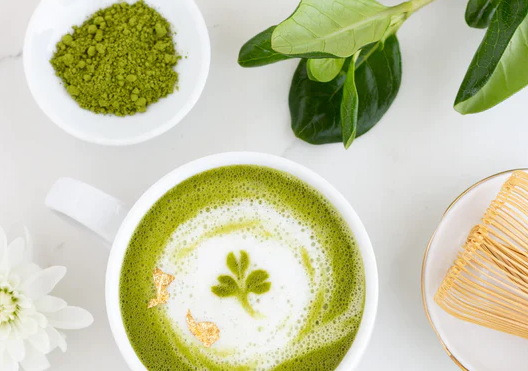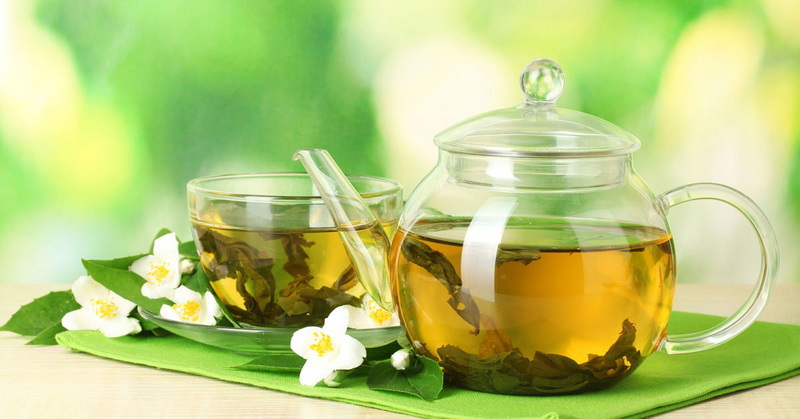Content Menu
● Introduction to L-Theanine and 5-HTP
>> L-Theanine
>> 5-HTP
● Comparative Effectiveness
>> Mechanism Comparison
>> Clinical Evidence
>> Safety and Side Effects
● Extended Analysis
>> L-Theanine and Cognitive Function
>> 5-HTP and Mood Disorders
>> Lifestyle Factors and Supplement Efficacy
>> Future Research Directions
>> Integrating Supplements into Daily Life
>> Combining Supplements with Other Therapies
● Conclusion
● Frequently Asked Questions
>> 1. What is the recommended dosage for L-Theanine and 5-HTP?
>> 2. Can I take L-Theanine and 5-HTP together?
>> 3. Are there any known interactions between L-Theanine and medications?
>> 4. Can 5-HTP be used for conditions other than mood disorders?
>> 5. Is L-Theanine beneficial for cognitive function?
● Citations:
In recent years, there has been a growing interest in natural supplements for mood support, particularly L-Theanine and 5-HTP. Both are popular choices for managing anxiety and depression, but the question remains: is Green Tea L-Theanine more effective than 5-HTP? This article will delve into the benefits, mechanisms, and comparative effectiveness of these two supplements.

Introduction to L-Theanine and 5-HTP
L-Theanine
L-Theanine is an amino acid primarily found in green tea, known for its calming effects without inducing drowsiness. It promotes relaxation by increasing levels of neurotransmitters like GABA and serotonin in the brain, which are crucial for mood regulation. L-Theanine can also enhance focus when combined with caffeine, reducing the jittery side effects associated with caffeine alone.
L-Theanine Benefits:
- Stress Reduction: Studies have shown that L-Theanine can significantly reduce stress responses, including lowering cortisol levels and improving mood.
- Cognitive Function: It may improve attention and working memory, suggesting benefits for cognitive health.
- Sleep Support: While primarily used for stress relief, some evidence suggests L-Theanine can aid in sleep by promoting relaxation.
5-HTP
5-HTP (5-Hydroxytryptophan) is a compound converted into serotonin in the brain, playing a key role in mood, sleep, and appetite regulation. It is derived from the seeds of the African plant *Griffonia simplicifolia* and is more efficient at crossing the blood-brain barrier compared to tryptophan, another serotonin precursor. 5-HTP has been studied for its potential in treating depression, anxiety, and insomnia by increasing serotonin levels.
5-HTP Benefits:
- Mood Enhancement: Preliminary studies indicate that 5-HTP can be as effective as some antidepressants for mild-to-moderate depression.
- Anxiety and Insomnia Relief: It may help reduce anxiety symptoms and improve sleep quality.
- Pain Management: 5-HTP has shown promise in alleviating symptoms of fibromyalgia, including pain and morning stiffness.
Comparative Effectiveness
Mechanism Comparison
- L-Theanine: Works by increasing GABA, serotonin, and dopamine levels, promoting relaxation and reducing stress without sedation.
- 5-HTP: Primarily increases serotonin levels, which can help with mood disorders but may interact with other medications.
Clinical Evidence
- L-Theanine: Studies have consistently shown its ability to reduce stress and improve mood in both healthy individuals and those with anxiety disorders.
- 5-HTP: While effective for some in improving mood and reducing anxiety, its efficacy can vary, and it may not be suitable for everyone due to potential interactions with medications.
Safety and Side Effects
- L-Theanine: Generally considered safe with minimal side effects, even at high doses.
- 5-HTP: Can cause side effects like anxiety, shivering, and heart problems due to excessive serotonin levels. It should not be taken with certain antidepressants.

Extended Analysis
L-Theanine and Cognitive Function
L-Theanine has been studied for its potential cognitive benefits, particularly in enhancing focus and attention. When combined with caffeine, it can improve performance in tasks requiring attention and reduce the negative effects of caffeine, such as jitteriness and anxiety. This synergistic effect makes L-Theanine a popular choice among students and individuals with demanding mental work.
5-HTP and Mood Disorders
5-HTP is often used as a natural alternative to antidepressants for mild depression. It works by increasing serotonin levels, which can help stabilize mood and reduce symptoms of anxiety and depression. However, its effectiveness can vary among individuals, and it should be used under medical supervision to avoid potential interactions with other medications.
Lifestyle Factors and Supplement Efficacy
The effectiveness of both L-Theanine and 5-HTP can be influenced by lifestyle factors such as diet, exercise, and sleep quality. A balanced diet rich in nutrients, regular physical activity, and adequate sleep can enhance the benefits of these supplements. Conversely, a poor lifestyle may reduce their efficacy.
Future Research Directions
Future studies should focus on comparative trials between L-Theanine and 5-HTP to determine their relative effectiveness in different populations. Additionally, exploring the long-term safety and efficacy of these supplements will provide valuable insights for their use in mood support.
Integrating Supplements into Daily Life
For those considering integrating L-Theanine or 5-HTP into their daily routine, it's essential to maintain a consistent regimen and monitor effects closely. Keeping a mood journal can help track changes and identify which supplement works best for individual needs.
Combining Supplements with Other Therapies
Combining these supplements with other therapies, such as mindfulness or cognitive-behavioral therapy (CBT), may enhance their benefits. Mindfulness practices can complement the calming effects of L-Theanine, while CBT can help manage thought patterns influenced by serotonin levels.
Conclusion
While both L-Theanine and 5-HTP offer benefits for mood support, their mechanisms and effectiveness differ. L-Theanine is generally safer and more versatile, providing stress relief and cognitive benefits without significant side effects. 5-HTP, on the other hand, is more focused on increasing serotonin levels, which can be beneficial but also carries risks of interaction with other medications. Whether L-Theanine is 60% more effective than 5-HTP depends on individual needs and responses, as there is no direct comparative study stating this specific percentage. However, L-Theanine's broader benefits and safety profile make it a popular choice for those seeking natural mood support.

Frequently Asked Questions
1. What is the recommended dosage for L-Theanine and 5-HTP?
L-Theanine is typically taken in doses of 200 to 250 mg, while 5-HTP is often recommended at 50 to 300 mg per day. It's crucial to consult with a healthcare provider before starting any supplement regimen.
2. Can I take L-Theanine and 5-HTP together?
While there is no direct contraindication, it's advisable to consult a healthcare provider before combining these supplements, especially if you are taking other medications.
3. Are there any known interactions between L-Theanine and medications?
L-Theanine is generally safe and does not have significant interactions with medications. However, it's always best to consult with a healthcare provider.
4. Can 5-HTP be used for conditions other than mood disorders?
Yes, 5-HTP has been studied for its potential benefits in conditions like fibromyalgia and insomnia, though more research is needed to confirm its efficacy.
5. Is L-Theanine beneficial for cognitive function?
Yes, L-Theanine may improve attention and working memory, suggesting benefits for cognitive health, particularly in middle-aged and older adults.
Citations:
[1] https://www.counselingandlifecoaching.com/natural-allies-for-anxiety-and-depression-exploring-l-theanine-5-htp-and-magnesium-supplements/
[2] https://mountainpeaknutritionalspro.com/wp-content/uploads/2020/09/Mood-Support_2pg_PB-version_3.13.24.pdf
[3] https://www.goodrx.com/conditions/insomnia/supplements-for-sleep
[4] https://pmc.ncbi.nlm.nih.gov/articles/PMC4728665/
[5] https://pmc.ncbi.nlm.nih.gov/articles/PMC9102162/
[6] https://www.mountsinai.org/health-library/supplement/5-hydroxytryptophan-5-htp
[7] https://www.healthline.com/health/food-nutrition/5-htp-side-effects-dangers
[8] https://pmc.ncbi.nlm.nih.gov/articles/PMC8080935/
[9] https://pmc.ncbi.nlm.nih.gov/articles/PMC11616108/
[10] https://todayspractitioner.com/sleep/sleep-and-relaxation-support-stat/
[11] https://www.medicalnewstoday.com/articles/l-theanine-adhd






























